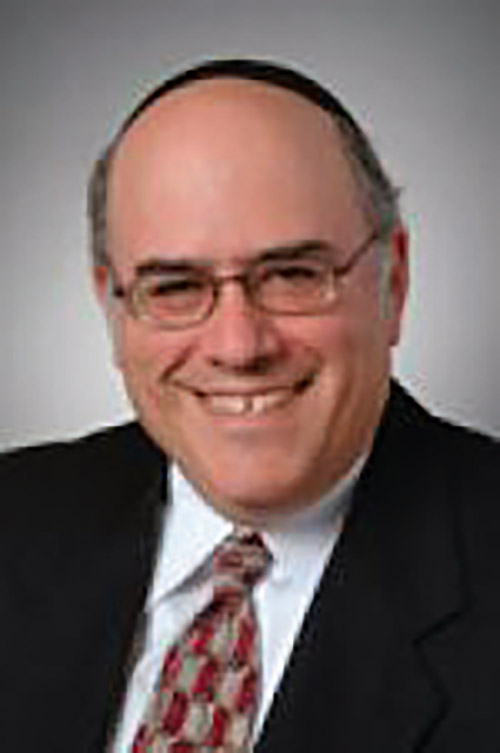
The adult education committee of Congregation Rinat Yisrael in Teaneck hosted noted Torah scholar and member Rabbi Dr. Jacob J. Schacter for a presentation marking the second yahrzeit of his beloved mother, Pnina Schacter, Penina Perel Etel Bat Leah Pesha V’Chanoch Henoch, z”l.
Titled “Appreciating the Importance of Gratitude,” Rabbi Schacter cited Biblical and Talmudic sources relating to the concept of expressing thankfulness in tribute to his mother who was greatly appreciative to all those individuals in her life who were at her side. Included in her constant expressions of gratitude were Rabbi Joseph Adler and the many members of Congregation Rinat Yisrael who welcomed her warmly during her visits over the past many years.
To a Zoom audience of over 300, Rabbi Schacter developed his presentation as an answer to four questions that he posed. Opening by referring to Tehillim 100, Rabbi Schacter cited the Midrash Rabbah, which states that eventually all of the Psalms will be null and void except for Tehillim 100, a Song of Gratitude. In addition, according to the Tur, this psalm is to be said in front of the aron kodesh. This psalm is the verbal replacement of the Korban Toddah brought in the Beit Hamikdash about which we are instructed to complete its consumption no later than the end of the night attached to the day it was offered. Compared to the timetable of other korbanot, this is a short window of time. Why this special significance of the Psalm of Gratitude and why the deadline for consumption of the korban todah?
The third question revolved around the mitzvot of Purim. In outlining these mitzvot, the Rambam in Hilchot Megillah requires that the money or other gifts offered to two poor individuals on Purim as matanot l’evyonim be more valuable than the cost of the Purim seudah, meal, mishloach manot and gifts to friends, combined. The final question related to the Jewish people’s matriarch, Leah, who turned to Hashem in praise only after the birth of her fourth son whom she named Yehuda, saying “Now I will thank Hashem.”
In answering the four questions, Rabbi Schacter defined gratitude as saying thank you for goodness given from outside of oneself, for goodness that you could not provide for yourself. He suggested that the reason for the special enduring quality of korban toddah and its expedited consumption is that in order to eat up the entire korban, the individual bringing the sacrifice must invite many of his friends to help him in completing the feast at the allotted time.
Thu,s bringing a korban toddah includes the incorporation of, and sharing with, many others in gratitude for the miracle that was performed for the individual. Giving generously to the poor on Purim is a similar example of “paying forward,” of sharing the simcha that was granted to the individual by Hashem with others, which is the only true way to celebrate a personal simcha. In explaining Leah’s tefillah of gratitude after the birth of Yehuda, Rabbi Schacter explained that each of the four Matriarchs would have likely been granted three children to account for the 12 sons of Yaakov. When Leah realized that she was granted more than the allotted three, she was inordinately grateful for the gift beyond her expectations. As Psalm 100 concludes, one realizes from the goodness granted to us that “Ki l’olam chasdo”— His steadfast love endures forever.
Prior to the Zoom presentation, the Schacter family assembled for a private tribute by children, grandchildren and great-grandchildren. The common thre was the inculcation by “Bubbie” of the value of expressing gratitude and the “paying forward” of the blessings and lessons for life which resonated with her during her 95 glorious years and which she passed down so successfully to the younger generations. May her memory serve as a blessing!
Rabbi Dr. Jacob J. Schacter is University Professor of Jewish History and Jewish Thought and Senior Scholar at the Center for the Jewish Future of Yeshiva University. From 1981-2000, he served as rabbi of the Jewish Center in New York City. From 2000-2005, he served as rabbi of the Maimonides Minyan in Brookline, Mass. Rabbi Dr. Schacter holds a Ph.D. in Near Eastern Languages from Harvard University and received rabbinic ordination from Mesivta Torah Vodaath. Dr. Schacter is presently completing a Hebrew edition of the autobiography of Rabbi Jacob Emden.
By Pearl Markovitz









